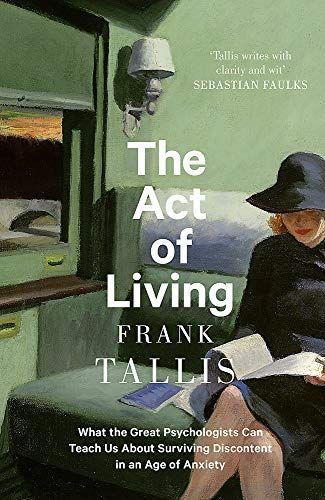
Act of Living What the Great Psychologists Can Teach Us about Surviving Discontent and Finding Fulfilment
Science, technology and western liberal democracy have all had a dramatic impact on our quality of life. Compared to previous generations, we have unprecedented access to information, increased personal freedom, more material comforts, more possessions, and greater life expectancy. Yet, a very significant number of people are depressed, anxious, or complain of being unfulfilled. Mental health statistics have never been worse.The goals of psychotherapy are not so very different from the goals of everyday life. People want to be happy and optimise outcomes. Within the context of the clinic, this is best achieved by focusing on, and eventually removing, symptoms; however, the models developed by psychotherapists have a far broader range of application. Freud used psychoanalysis primarily to treat his patients, but he also used it to explain aspects of civilisation, society, art, literature and the supernatural. As such, the theories and ideas that have arisen out of psychotherapy represent something of an undervalued resource. They are highly instructive and can illuminate many subjects - among them, the question of how to live.It is remarkable how the models of mind and behaviour arising from the practice of psychotherapy have had such little cultural impact. Shelves sag with self-help books, but most of these relate to specific problems and they do not address the broader challenges of the human condition. Yet, implicit in every model of mind are recommendations for life. THE ACT OF LIVING treats psychotherapy as a single, cohesive philosophical tradition. It synthesises the thinking of the principal figures in the history of psychotherapy (e.g. Freud, Jung, Adler, Frankl, Rogers, Fromm, Ellis and Laing) with a view to providing the reader with an accessible and practical guide to optimal living.